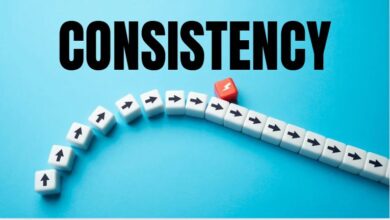Turn Jealousy Into Success

Envy is often associated with negative emotions: ANGER, RAGE and SADNESS. But experts reveal that if used wisely it can make you a better person.
Human behaviour expert and author of self-help books, Lisa Fischer, describes jealousy on Oprah.com as “that sickening combination of possessiveness, suspicion and rage that can take over your mind and threaten your very core”. In the same article, primatologist Jane Goodall compares human jealousy with that of other animals. She says it’s like a female chimp who was tipping her buttocks towards a young male in the classic (for chimps) “come hither” pose when he ignored her and began to court another. Passion slapped him hard. Bluebirds are also jealous. In one experiment involving a breeding pair, evolutionary biologist David Barash waited until a cock was away, and then placed a stuffed male on a branch about three feet from the nest, where the female rested. When the cock returned, he began to squawk, hover and snap his bill in fury at the dummy. Then he attacked his mate, pulling feathers from her wings. She fled. As people, we too can be jealous and lose control and can take it to the extreme.
Even as newspaper headlines shout: “Man kills girlfriend in jealous rage!” or “Woman pours acid on another”, experts firmly maintain that a little but of jealousy is natural and even healthy. Anyone who loves will feel a tad jealous from time to time, it shows you care. However, chronic jealousy really is a monster, whatever colour its eyes. If you’re always suspicious of your partner or envious of your friends, you’ll never be able to relax and enjoy your own life. Jealousy really comes from a deep inner lack of self-esteem and self-confidence. Your ego is not strong enough to say, “this is me, and I’m just fine as I am”. It can also mask other enotions, such as fear and anger.
Control Possessiveness
If your jealousy comes in the form of possessive and demanding love towards one person, then turn to therapy, which is said to reduce anxiety and stress. Also combine therapy with affirmations. Write this down: ‘i am loved’ and say this at least 20 times a day. Then write any responses you have to this freely.
You may be surprised to find old emotions and past conditions come up to be released. Psychotherapist Paul Hauck, whose popular books have brought help and advice to countless readers, asserts that jealousy and possessiveness are often the most tragic emotions that can be overcome. Applying the principles of Rational Emotive Therapy (RET), Hauck demonstrates how jealousy is a learnt emotion and can be unlearned once you understand why you’re jealous and begin to think in new ways about yourself and others.
RET is a form of therapeutic psychology that emerges from behaviourism. It attempts to use reason and rationality to recognise self-defeating cognitive process, and learn to emote more appropriately. Effectively, the idea is that subconscious or destructive behaviours are consciously acknowledged and then subverted in favour of more constructive behaviour.
Use Envy Wisely
In an article on Searchingforhappiness.com, writer Wendy McCance reveals how jealousy can make you successful and bring happiness into your life. Use it to strengthening yourself. Who are you jealous of? What is it about their life you crave? Ask yourself, if you woke up and had their life, how would you know? Go beyond the obvious.
For example, if you said ‘rich’, how would that feel and how would people know you were rich (not by your clothes, house, car etc, but from your behaviour)? The question is how would you feel about yourself? Discover the soul qualities that lie beneath your desires, you might need more love, security, confidence and joy. How could you bring those fundamental qualities into your life right now?
Do you envy someone’s career? Do you wish you had a more devoted mate? What’s going wrong in your own relationship? If you can ask yourself what’s missing in your life you can put yourself on track to change,” says McCance. “Most successful people rein in their jealousy. What would happen if you took the knowledge the jealous feelings give you and put a plan together on how to get what others have?”
When you envy someone’s job, it’s a red flag that something might be off in your own career. Give it a thorough examination and look at what piece is missing. “Then go about fixing it. Maybe you need a different job or aren’t giving your current one the attention it needs ,” she says. Ultimately, it seems those in the know agree that if someone is always thrusting their success down your throat, it may be time for you to point out that it is insensitive. If your partner is mucking around, discuss your future in hard terms. Own your jealousy!
Treat Jealous Normally
In Chinese medicine, jealousy is considered to stem from imbalance of the wood element, connected with the liver and gall bladder. Try these:
1. Exercise releases resentment, jealousy and anger. Mix good hard aerobic exercise with soothing yoga.
2. Stretching makes you more flexible, in mind as well body. Try deep stretching therapies like Thai massage.
3. Use turmeric in your cooking, it supports both the liver and gall-bladder. Caution: Do not use if you’re pregnant or have acute hepatitis.
4. Cut back on alcohol, caffeine, fats and dairy. Consider a detox. Dandelion tea supports both the liver and gall bladder.
5. Released jealousy safely, punch a pillow shouting out the sound ‘HO!’ with each punch.
Homeopathy can also help dissolve by the pain of jealousy. Ideally see a qualified homeopathy. The point is to develop a healthy relationship with jealousy and hone its energy to produce positive results in your life.
Types Of Jealousy
Romantic: Many experts believe that romantic jealousy is probably the most frequently experienced type. In fact, according to PBS Nightly Business Reporter, the first fight romantic couples have usually involves jealousy. Interestingly, a 2004 study published in Evolutionary Psychology found that when asked about sexual versus emotional infidelity, respondents of both sexes reported more jealousy about their partner’s emotional infidelity.
Professional: This form strikes people who are jealous about a “missed” promotion, salary level or other work-related issue.
Friend or sibling: People are often fearful of ‘losing’ a friend to a interloper. Sibling rivalry is one trademark characteristic of this type of jealousy, and those who admit to this type say it’s usually condoned by parents.
Abnormal jealousy: This is psychotic, pathologist, delusional or anxious hey. According to Dr Hupka, abnormal jealousy can be attributed to common issues including extreme insecurity, immaturity and being a “control freak”. In some cases however, it’s due to a mental illness such as paranoia or schizophrenia, or a chemical imbalance in the brain.




